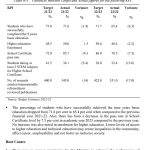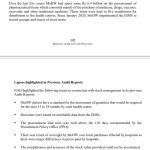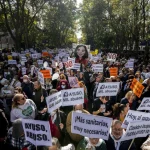Soon after reaching Madina, the prophet of Islam [pbuh] set up an ideal Islamic state with a common wealth. The Holy prophet was the Head of the state and sovereignty belonged to Allah. Besides Executive and judiciary powers, he was also vested with military powers. He was the law giver, chief justice and supreme military commander. A mosque was established at Madina which was a place of prayer. Besides, social, political and economic activities were also organized from there. There was consultancy in matter of the State with his companions. His administration was Islamic oriented rather.
Religious administration.
Muhammad [pbuh] was first a prophet and then an administrator. His administration was based on Islamic principles. The main purpose of his administration was to promote Islamic values. The prophet’s Mosque was the centre of all activities, religious or otherwise. Other mosques were to serve as center of local activities. He sent missionaries to teach Islam to people of different tribes. Quran readers were trained and sent to different parts of the country to promote its study. The Holy prophet organized the Haj as an institution of international importance. He himself led the Hajj before his demise.
Revenue administration
In the days of the Holy prophet the revenue of the State consisted of Alganimah, [booty] Aljizya [polltax] zakat, sadaqua, Alkharaj [ land tax collected from the non Muslims] and Alfay was the revenue derived from State lands. 4/5 of the booty captured during the war were distributed among the soldiers and 1/5 went to public funds.
Military administration
At the outset the Muslims fought aggression from the Quraish and the hostile tribes. In the beginning there was no regular or organized army. During the Battle of Badre, the Muslim force, comprised of 313 volunteers. But when Islam spread the number of Muslims increased significantly. Ten thousand Muslims were present during the conquest of Makkah and that number increased by three fold during the expedition of Tabuk. The soldiers were under the direct command of the Holy prophet. The five winged formations were adopted, front guard, rear guard, the centre, the right and the left.
As a statesman
A State was founded and a code of life was implemented based on the Quran and sunnah. Unlike the church system, Islam enjoined man with God. Provinces were created, with governors who were accountable for their act of omission and commission to the Holy prophet. Social equality of men was promoted. The poor were assisted by the rich. Congregation was to meet in the mosque. Islamic values got an impetus, namaz and other elements of faith were promoted. An economic system was established which functioned with fairness, Booty was distributed accordingly; the haves not were relieved from the burden of poverty by receiving zakat and sadqua. A public fund was also established in order to control the State revenue appropriately.
In Madina the Holy prophet drafted a charter in which the rights and duties of the citizen was found. It was the first written constitution in history. It stipulated that:
All blood feuds [long war among family tribes ] were to be abolished
A murderer was subject to blood vengeance. He was not to be protected
All people of Madina whether Muslims or non Muslims were to form one community.
The Jews and other communities were to enjoy equal rights.
The Jews had to support the Muslims against aggression of Madina.
All communities were to live in peace and harmony.
All disputes were to be referred to the Holy prophet and his decision was to be final.
In his time the country was divided into provinces, like Madina, Makkah, Aljunad, Taymah, Yemen, Hadramaut, Oman and Bahrein. He appointed a governor in every province. An amil was also appointed for every tribal region to collect zakat and other taxes. To administer justice judges were appointed in every province.
Muhammad [pbuh] was a man of virtue, a perfect model in all aspects of life. He had a charismatic personality with an attractive disposition, a man filled with the milk of human kindness. He is rated as the greatest man in the history of mankind. However, Muhammad (SAW) was a prophet above all then he commanded great respect as an administrator and statesman.
Cassam Tupsy
NOTE : Les points de vue exprimés dans cette rubrique ne reflètent pas nécessairement ceux de la rédaction.



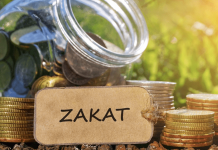

![[Khutbah] Agissons pour démanteler l’apartheid](https://sundaytimesmauritius.com/wp-content/uploads/2024/04/bb04fde8a58c094bbc787384ea2fc3d1-218x150.jpg)
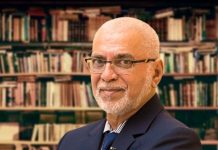
![[Democracy Watch Mauritius] Pour des résultats positifs aux travaux parlementaires ?](https://sundaytimesmauritius.com/wp-content/uploads/2024/03/democracy_0-218x150.jpg)

